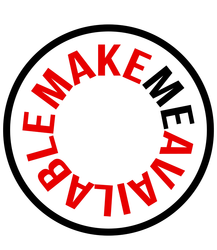
The money from my purse was missing. It wasn’t much, but as a teenager working minimum wage, losing $20 felt like a big blow. The strange thing was, my purse had been in my room. That meant someone who lived in my house had taken my money.
Distraught, I went to my step-mother and explained the situation. Her response shook me. Without looking up from what she was doing her flippant reply came, “You should have known better than to keep it there.”
There it was. Shame. It was my fault my money had been stolen from my room. Now, I can look back and see the lie for what it was, but I could not see it at the time. I embraced the shame and guilt of the situation. Sadly, experiencing shame like this was a common occurrence in my teen years.
I came to own a distorted view of myself. I believed I was at fault for anything that made me slightly uncomfortable. If the mood in the room was heavy, I must have done something wrong. If someone was upset, I had somehow made them so. If a moment felt awkward, it was of my own making. I wanted so desperately to be accepted and approved of, but Instead I often felt small, undesirable, and out of place.
Later in life, I discovered I had adopted this process of shaming that had been used against me as a way to control and admonish myself. Any time I felt I had messed up in any way, I shamed myself. It became a powerful and highly destructive tool in my pursuit of acceptance in the world.
Growing up, I went to church regularly and often heard about God’s love and grace. I believed in this God and I prayed to accept Jesus at every opportunity offered. However, I lacked an understanding of how real love operates. Shame was my avenue to “holiness.” I thought I was honoring God in my efforts to do what was right, punishing myself when I messed up. I equated punishment with learning and chastisement with sanctification.
It was not until I was almost 30 that God began peeling back the layers of these lies. I realized my belief in God’s love for me was shrouded in conditions.
My behaviors, thoughts, attitudes and words had to be “right” for me to be worthy of God’s love. However, the truth is God loves me just as much now as He did years ago. His love never changes. It doesn’t matter what I am doing with my life; His love is constant. I can not earn more of it, nor lose any of it, no matter what I think, feel, do, or say.
Unconditional love is a confusing concept for someone who has not fully experienced it. Receiving something not earned without requirement, achievement, or hustle can seem illogical.
The message of shame is, “I am bad”—undeserving, unworthy, un-whole. Trying to reconcile unconditional love with a mindset of shame doesn’t work. There wasn’t space in my heart and mind for the opposing forces of shame and unconditional love. One of them had to go. I chose shame. But how? It was so deeply ingrained in who I was. I didn’t know how to see myself without this warped lens.
An incredible part of God’s unconditional love is its power and with the help of my husband, trusted friends, a good therapist and time, I have been able to slowly chip away at my internal default settings.
The power of God’s love consistently overcomes my shame. When I make a mistake, His love extends grace instead of condemnation. When I feel unworthy or unwanted, His love reassures me I am always accepted by Him just as I am.
Proverbs 3:5 has become a verse I turn to when shame tries to take over. “Trust in the Lord with all your heart and lean not on your own understanding; in all your ways submit to Him and He will make your paths straight.”
I am practicing trusting the Lord when He says He loves me unconditionally, even when it doesn’t make sense, or I don’t “feel” His love and unconditional acceptance. God’s word tells us over and over how much He loves us (Romans 8:35-39, Ephesians 3:18-19, John 3:16, Psalm 36:5-7, I John 3:1, Psalm 5:11-12, and so many more). Trusting these words are true can break the hold that shame can have over us.
At times the bonds of shame have felt insurmountable, but as I keep trusting in the Lord, believing in His love for me and leaning into grace, the power shame once held over me continues to diminish. It’s a battle that will probably stay with me for the rest of my life, but I will keep trusting in God’s unconditional love.
Does shame have a presence in your life? What would it look like for you to allow God’s love and grace to combat that shame?
You can connect with Kristen on IG and her website
If you enjoyed this post you can read more here
You can support our charities with your purchase here
